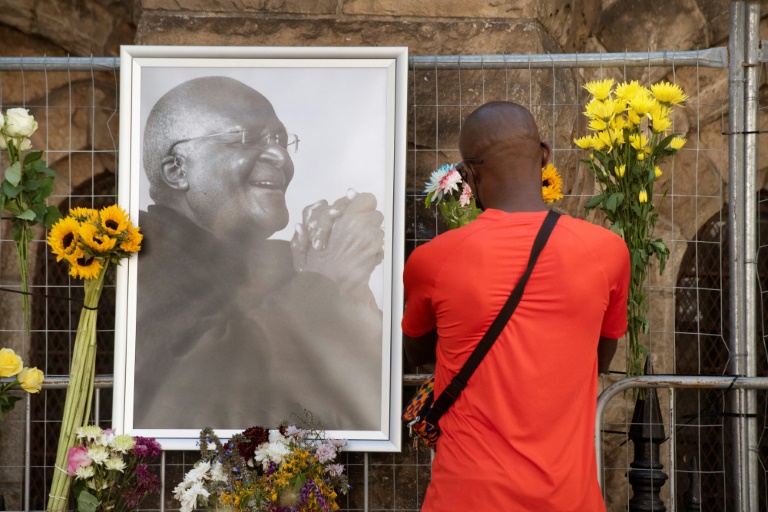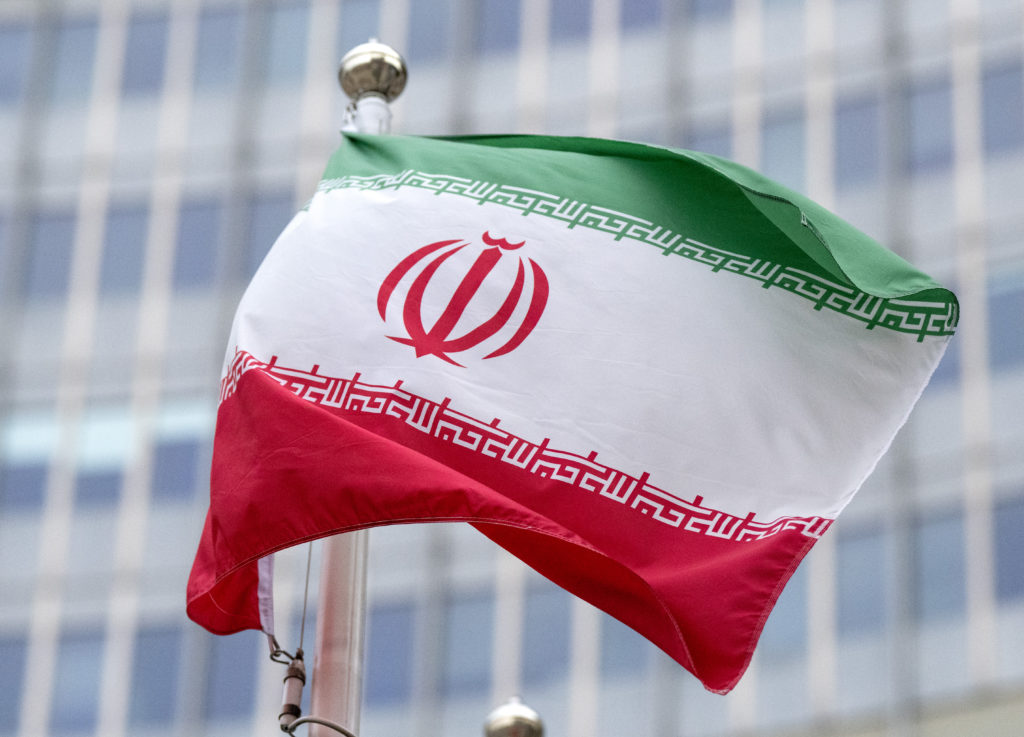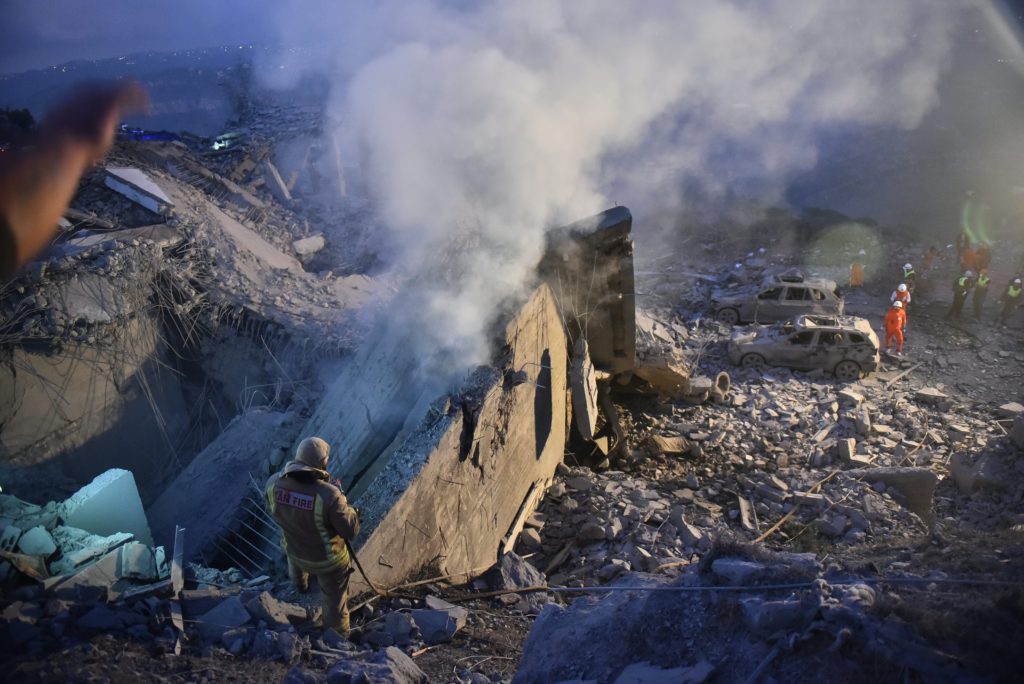South Africa on Monday began a week of mourning for revered anti-apartheid campaigner Archbishop Desmond Tutu.
The Nobel Peace Prize laureate passed away on Sunday aged 90, stripping the world of a towering moral figure and the last great protagonist of a heroic South African era.
“He was brave, he was forthright and we loved him just for that, because he was the voice of the voiceless,” President Cyril Ramaphosa told reporters after visiting Tutu’s family in Cape Town.
The funeral will be held on New Year’s Day at St George’s Cathedral in his former Cape Town parish, Tutu’s foundation said, although ceremonies are likely to be muted because of Covid-19 restrictions.
Dozens of people braved rain to gather outside the cathedral on Monday, leaving flowers and messages.
The widow of South Africa’s first black president Nelson Mandela, Graca Machel, issued a statement to say she mourned “the loss of a brother”.
Tutu “is the last of an extraordinarily outstanding generation of leaders that Africa birthed and gifted to the world”, she said.
“He stood resolute and fearless, leading demonstrations cloaked in his flowing clerical robe with his cross as his shield — the embodiment of humankind’s moral conscience.”
The bells of St George’s will ring for 10 minutes from noon each day until Friday. The cathedral has asked those who hear the sound to pause in their daily work and think of Tutu.
A memorial service will be held in the capital Pretoria on Wednesday. Family and friends will gather on Thursday evening around Tutu’s widow, “Mama Leah”.
On Friday, his remains will be placed in the cathedral on the eve of the funeral, although attendance at his farewell on Saturday will be capped at 100, according to the archbishop of Cape Town, Thabo Makgoba.
Around 400 people have already expressed their intention to attend the event.
But Makgoba told a press conference: “Only a fraction of those who want to be there can be accommodated in the cathedral. So please don’t get on a bus to Cape Town.”
Singing at the ceremony will also have to be moderated because of Covid curbs, officials said.
Tutu’s remains will be cremated and his ashes will stay in the cathedral.
– A ‘shield’ –
Crackling with humour and warmth, Tutu will be most remembered for fearlessly speaking out against white minority rule, which garnered him the Nobel Peace Prize in 1984.
He was appointed archbishop in 1986 and used his position to advocate tirelessly for international sanctions against apartheid.
He coined the term “Rainbow Nation” to describe South Africa when Mandela became the country’s first black president in 1994.
He retired in 1996 to lead a harrowing journey into South Africa’s past as head of the Truth and Reconciliation Commission, which exposed the horrors of apartheid in terrible detail.
Panyaza Lesufi, a senior member of the African National Congress (ANC), which swept aside apartheid and remains in power, said Tutu’s unique status had provided a “shield” during protests.
“When we were young activists we knew as long as Archbishop Tutu is there the police and the army will not shoot at us,” he tweeted.
But Tutu’s fight against injustice continued long after racial segregation ended.
He excoriated the ANC for fostering cronyism, corruption and incompetence after it was voted into office.
– ‘Truly meaningful life’ –
Tributes poured in from across the globe, including from heads of state and religious leaders, with US President Joe Biden saying he was “heartbroken” by the news.
Barack Obama, the first black US president, hailed Tutu as a “moral compass”.
Tutu’s great friend the Dalai Lama, who is expected to speak at his funeral, said in a statement that “we have lost a great man, who lived a truly meaningful life”.
Anglican leader Archbishop of Canterbury Justin Welby said Tutu “was a great warrior for justice who never stopped fighting.”
“When you were in parts of the world where there was little Anglican presence and people weren’t sure what the Anglican Church was, it was enough to say ‘It’s the Church that Desmond Tutu belongs to’,” Welby said in a statement.
Tutu was diagnosed with prostate cancer in 1997 and repeatedly underwent treatment.
He had been in a weakened state for several months and died peacefully at 7 am (0500 GMT) on Sunday, according to several of his relatives interviewed by AFP.
In his final years, his public appearances became rarer. This year, he emerged from hospital in a wheelchair to get a Covid vaccine, waving but not offering comment.
burs-ger/gd/ri











